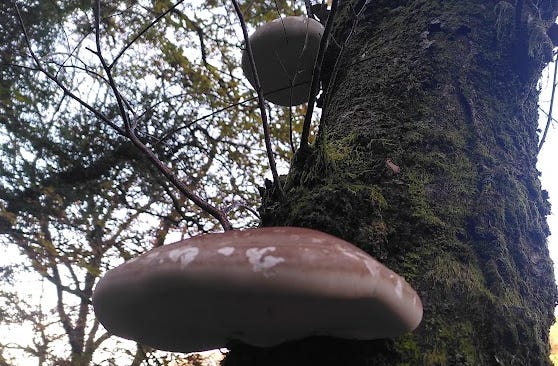Heya Kate,
I really enjoyed your last letter, and I think you’re honing in on something so important in exploring our sense of time.
A few years ago, when I was living in London, I remember becoming so completely fed up with the way every single person seemed to answer the question “How are you?” with some variation that involved the word “busy”. What bugged me most about this is the way people seemed to wear it with pride. Being busy was the goal. Being busy was the dream. Being busy meant being a victor at this absurd game everyone seemed to be playing.
Before Stephen Pinker got his kicks saying the world is the best it has ever been, he wrote insightful books about language. I remember being mind-blown by his explanations of how verb conjugations shape our perception of the world. In English we use many of the same verbs to apply to money and time, and as such form into similar constructs in our minds. To spend. To save. To waste. Even to donate. I wonder if some of our cognitive dissonance around time in small organisations stems from here.
Like many of us that have spent a lot of time in small organisations I carry an internal narrative about being time and money poor, resource stretched. I wonder in my own life if I’ve worn this more as a badge at times, taking some level of pride in being a martyr to the causes. If I’m really honest with myself I have to admit that the narrative of being resource stretched was one that I needed to help me feel like the projects I worked on and the funding I received were noble, important and justified. There is a fine line between blaming the resource stretched for their mindset, and taking ownership of limiting beliefs and attitudes. But it’s a line that needs to be danced.
One day I became so fed up with people proudly declaring their busy-ness that I vowed never again to say I was busy. Sometimes things might demand more time of me than I actually have, and that is a problem to resolve. But I am never busy. Busy became reframed as a failure of planning and mindfulness. The impact this had on my life at this time was enormous. No, I was not too busy to just go for a long walk on a sunny afternoon. No, I was not too busy to collect herbs from the woods. I was not too busy for a spontaneous coffee with a friend. I was not too busy to dwell for a few hours writing a blog on a topic I didn’t fully understand just to try and understand it. The ironic thing about this shift is that I realised I was actually getting more done, and doing more interesting work. For me, this was a game changer.
It is one thing doing this as an individual, but it is another to take the idea to an organisation. As you started exploring in your last letter, this probably means creating pockets of collective kairos in which the organisation weaves its narrative and takes stock of all the busy-ness. My sense is that container building for this work is important. Kairos time (narrative time) has a different feeling to chronos time (clock time). It is spacious, more dreamlike, meandering and reflective. It is non-linear and understood best in hindsight. It is difficult to create a sense of kairos time while in the throws of a hectic chronos calendar, but I’m imagining it is possible.
I’m imagining a kind of organisational ritual. Creating and holding kairos space in a different place to normal working. Perhaps inviting a solo walk amongst trees before sitting together. Perhaps using metaphor and myth to expand our imaginations beyond our usual ways of thinking. Perhaps finding ways to engage more of our senses, more of our physicality throughout the sessions. Dancing with that line between business as usual and a bit woo.
Perhaps even more important is finding kairos time across different organisations. Which is why really well-held conferences are so important. I often think about the Oxford Real Farming Conference as the thing that put the regenerative/agroecolgoical food sector on the map. Imagining all the people and organisations there as the bubbles at the bottom of the Berkana Institute’s two loops model, the busy flux and flurry of conference participant bubbles. Everyone there has moments that push their edges - a bit too corporate in places, a bit too woo in places. That conference has allowed the bubbly swarm to rise in influence so significantly in the past 10 years.
Writing this letter I feel a sense that … we are doing the thing. I can see that things are moving and shifting and changing. Not always in ways I’d like, but often. This feels like a real and tangible win from taking a moment of reflective kairos time.
Looking forward to your next letter, Kate.
With love,
Lynne


gosh yes I love this. I really catch myself sometimes responding to the "how are you?" question with "busy!" and it's SO BORING. lots to ponder for next week!